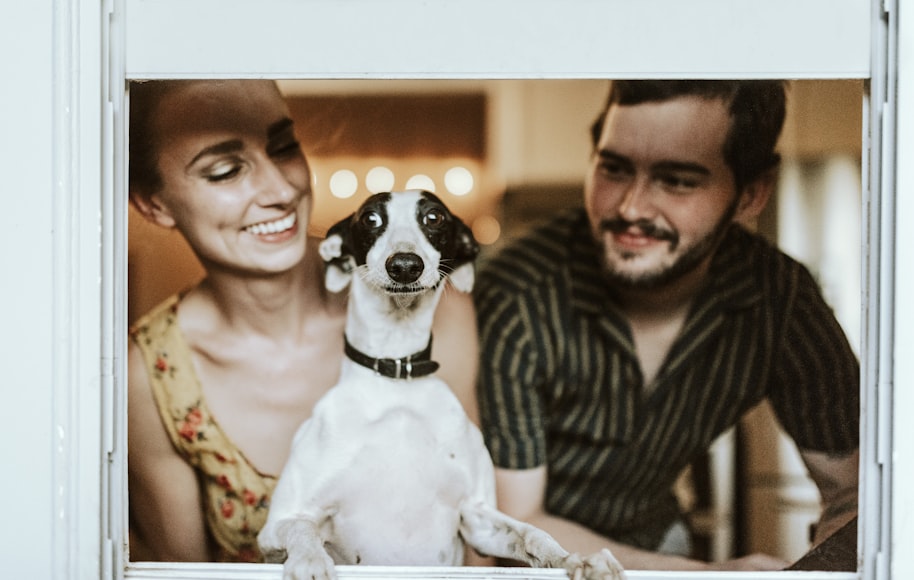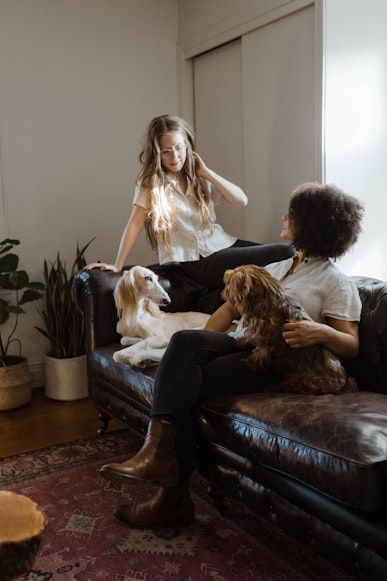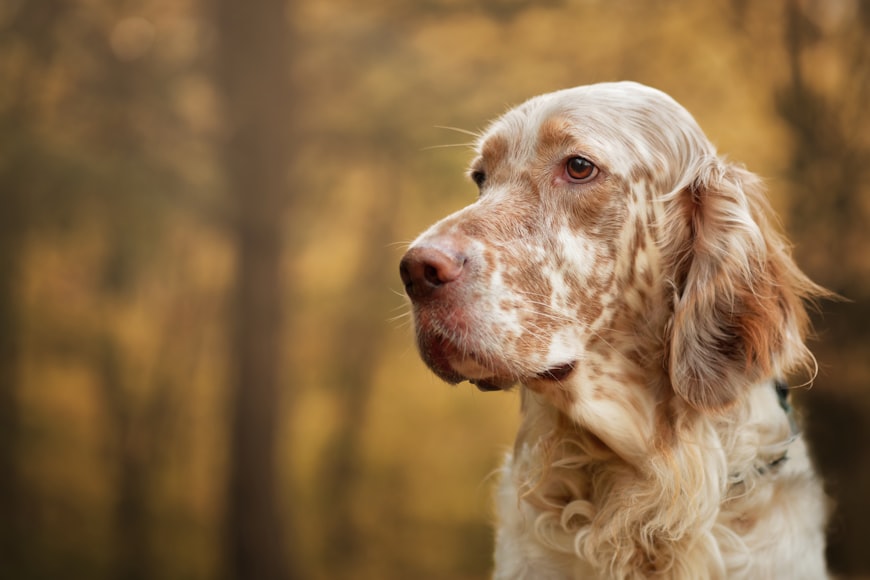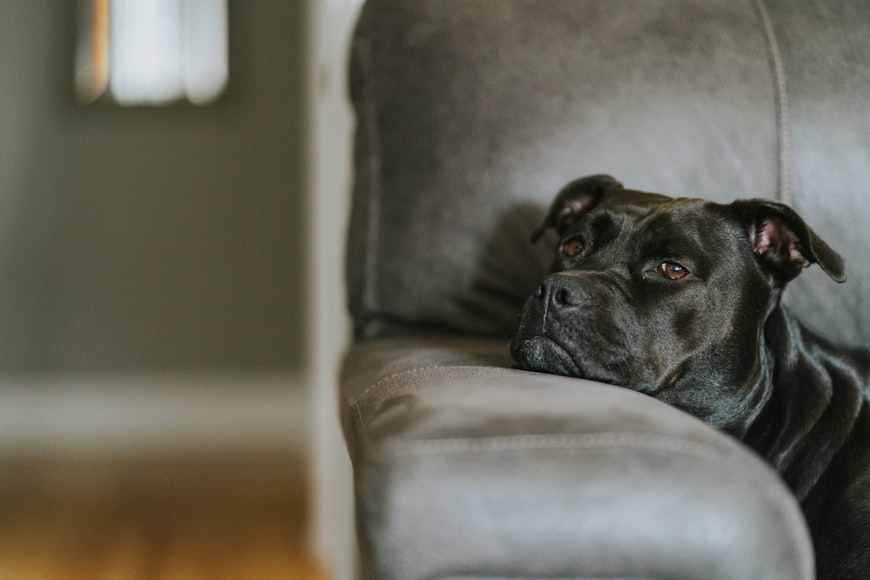How to Get Rid of Poop Breath in Dogs

Every dog owner has experienced the dreaded “poop breath” at some point. While it’s not uncommon for dogs to have occasional bad breath, persistent or severe poop breath can indicate underlying health issues. Here’s a comprehensive guide to help you get rid of poop breath in dogs:
Reasons for Poop Breath
- Gum Disease: Bacteria accumulation on the gums can lead to infection and inflammation, causing bad breath.
- Dental Disease: Cavities, broken teeth, and other dental issues can provide a breeding ground for bacteria, resulting in poop breath.
- Gastrointestinal Problems: Dietary sensitivities, digestive disorders, and infections can cause digestive upset and lead to poop breath.
- Respiratory Infections: Respiratory infections, such as kennel cough, can cause inflammation and drainage, contributing to poop breath.
- Kidney Disease: Advanced kidney disease can cause a build-up of toxins that can lead to poop breath.
Methods to Get Rid of Poop Breath
1. Dental Care:
- Brush Your Dog’s Teeth: Regular teeth brushing is essential for removing plaque and bacteria. Use a dog-specific toothpaste and brush for best results.
- Dental Chews and Toys: Dental chews and toys help remove plaque and stimulate saliva production, which helps neutralize bad breath.
- Professional Dental Cleaning: If your dog has significant tartar build-up or dental disease, professional cleaning by a veterinarian is necessary.
2. Dietary Modifications:
- Probiotics: Probiotics are beneficial bacteria that can help restore the balance in your dog’s gut and reduce poop breath.
- Dental Diets: Prescription or over-the-counter dental diets are specially formulated to promote dental health and reduce bad breath.
- Avoid Sugary Treats: Sugar promotes the growth of bacteria that cause bad breath. Opt for healthier treat options.
3. Gastrointestinal Care:
- Treat Digestive Upsets: Consult with your veterinarian to determine the cause of any digestive issues and treat them accordingly.
- Check for Allergies: Food allergies can cause digestive upset and contribute to poop breath. Perform food elimination trials to identify and remove allergens.
4. Respiratory Care:
- Keep Your Dog Vaccinated: Vaccinations help prevent respiratory infections that can lead to poop breath.
- Trachea Rinse: For dogs with chronic respiratory problems, a trachea rinse can help remove mucus and reduce inflammation.
5. Other Measures:
- Clean Your Dog’s Water Bowl: Dirty water bowls can harbor bacteria that contribute to bad breath. Clean them daily.
- Avoid Chewing on Non-Food Items: Chewing on inappropriate objects, such as socks or sticks, can damage teeth and lead to poop breath.
- Use a Tongue Scraper: A tongue scraper can help remove bacteria from the surface of your dog’s tongue.
When to See a Veterinarian:
If your dog’s poop breath persists despite home care measures, it’s crucial to seek veterinary attention. Underlying health conditions, such as kidney disease or respiratory infections, may require medical treatment.
Conclusion:
Getting rid of poop breath in dogs requires a multifaceted approach that addresses the underlying cause. By implementing a combination of dental care, dietary modifications, gastrointestinal care, respiratory care, and other preventive measures, you can help your furry friend maintain a fresh and healthy breath. Remember, regular veterinary check-ups are essential for early detection and treatment of any underlying health issues that may contribute to poop breath.
Identify the Cause of Poop Breath:

Poop breath, characterized by its unmistakable fecal odor, can be an unpleasant problem for dog owners and their canine companions. While it may seem like a harmless annoyance, it can indicate underlying health issues that require attention. This article delves into the causes of poop breath in dogs and provides effective solutions to combat this smelly problem.
Identifying the Cause
Determining the root cause of poop breath is crucial for developing an effective treatment plan. Consider the following potential culprits:
- Gastrointestinal Issues: Dietary indiscretion, indigestion, and digestive disorders can lead to the accumulation of foul-smelling gas in the digestive tract, which can then escape through the mouth.
- Dental Problems: Dental disease, such as periodontal disease and gingivitis, can cause bacterial buildup in the mouth, resulting in bad breath.
- Other Health Conditions: In rare cases, poop breath may be a symptom of an underlying health condition, such as liver or kidney disease, which can affect the body’s ability to process waste products effectively.
Treatment Options
- Addressing Gastrointestinal Issues: Feed your dog a balanced, high-quality diet that is easily digestible. Avoid giving table scraps and fatty foods, as these can upset the digestive system. Consider adding probiotics to your dog’s food to promote a healthy gut microbiome.
- Maintaining Dental Hygiene: Brush your dog’s teeth regularly (at least twice a week) with a dog-specific toothpaste. Provide chew toys that promote dental hygiene, such as dental chews and bully sticks. Schedule professional dental cleanings with your veterinarian as needed.
- Excluding Other Health Conditions: If you suspect an underlying health condition may be causing poop breath, consult with your veterinarian for a thorough examination. They can perform blood tests, X-rays, and other diagnostic tests to rule out any medical issues.
- Other Remedies:
- Fennel Seeds: Fennel seeds have antibacterial and anti-inflammatory properties that can help freshen breath. You can sprinkle ground fennel seeds on your dog’s food or give them a fennel treat.
- Parsley: Parsley contains chlorophyll, a natural breath freshener. Chop fresh parsley and add it to your dog’s food or water.
- Apple Cider Vinegar: Diluted apple cider vinegar (one tablespoon per cup of water) can be added to your dog’s water bowl to help neutralize bad breath.
- Coconut Oil: Coconut oil has antimicrobial properties and can help reduce inflammation in the mouth. You can apply a small amount of coconut oil to your dog’s gums or give them a coconut oil treat.
Prevention
To prevent poop breath from recurring, follow these preventive measures:
- Feed your dog a healthy diet and avoid giving them human food.
- Brush your dog’s teeth regularly and provide dental chews.
- Schedule regular veterinary checkups to monitor your dog’s overall health.
- Keep your dog hydrated by providing plenty of fresh water.
Conclusion
Poop breath in dogs is a common problem that can have various causes. By identifying the underlying cause and implementing appropriate treatment options, you can effectively combat this unpleasant odor and ensure the health and well-being of your furry friend. Regular dental hygiene, a balanced diet, and preventive measures are essential for maintaining a fresh and healthy dog’s breath. If you have any concerns about your dog’s breath, do not hesitate to consult with your veterinarian for professional advice.
Inspect the Teeth and Gums:

Poop breath is a common and unpleasant problem that can affect dogs of all ages and breeds. While it’s not a serious medical condition, it can be a source of embarrassment and can make it difficult to bond with your furry friend. Fortunately, there are several effective ways to get rid of poop breath and keep your dog’s breath smelling fresh and healthy.
Causes of Poop Breath
Poop breath is caused by a buildup of bacteria in the mouth. These bacteria feed on food particles and other debris that gets trapped in the teeth and gums. As they digest this material, they produce gases that can cause bad breath.
There are several factors that can contribute to poop breath in dogs, including:
- Dental disease: Dental disease, such as tartar, plaque, and gum inflammation, can provide a breeding ground for bacteria that cause bad breath.
- Poor oral hygiene: Dogs who do not receive regular dental care are more likely to develop dental disease and poop breath.
- Diet: A diet that is high in protein or fat can contribute to poop breath.
- Certain medical conditions: Some medical conditions, such as kidney disease and diabetes, can also cause poop breath.
How to Get Rid of Poop Breath
There are several steps you can take to get rid of poop breath in your dog, including:
1. Inspect the Teeth and Gums: Check your dog’s teeth and gums for signs of dental disease, such as tartar, plaque, or gum inflammation. If you notice any signs of dental disease, take your dog to the vet for a professional cleaning and treatment.
2. Brush Your Dog’s Teeth: Brushing your dog’s teeth regularly is one of the most effective ways to prevent and treat poop breath. Use a soft-bristled toothbrush and dog-specific toothpaste to brush your dog’s teeth at least twice a week.
3. Use Dental Chews: Dental chews are a great way to help clean your dog’s teeth and reduce bad breath. Choose dental chews that are approved by the Veterinary Oral Health Council (VOHC).
4. Feed a Healthy Diet: A diet that is low in protein and fat can help reduce poop breath. Avoid feeding your dog table scraps or human food, as these can contribute to bad breath.
5. Add Probiotics to Your Dog’s Diet: Probiotics are live microorganisms that can help improve gut health and reduce bad breath. You can add probiotics to your dog’s diet by giving them a daily probiotic supplement or feeding them fermented foods, such as yogurt or kefir.
6. Use a Breath Freshener: If your dog’s poop breath is severe, you may need to use a breath freshener to temporarily neutralize the odor. There are a variety of dog-specific breath fresheners available over-the-counter.
7. See Your Veterinarian: If your dog’s poop breath does not improve with home treatment, it is important to take them to the veterinarian. Your veterinarian can rule out any underlying medical conditions that may be causing the bad breath.
Conclusion
Poop breath can be an unpleasant problem for both dogs and their owners. However, by following these simple steps, you can effectively get rid of poop breath and keep your dog’s breath smelling fresh and healthy.
Brush the Teeth Regularly:

As responsible dog owners, we cherish the unconditional love and companionship our furry friends provide. However, one persistent issue that can dampen our interactions is the unpleasant odor of poop breath, a common issue among canines. This article delves into the root causes of this issue and provides practical strategies to combat it, restoring your dog’s breath to its pristine freshness.
Understanding the Causes of Poop Breath
Poop breath, also known as halitosis, is a common problem in dogs and can arise from several underlying factors. These include:
- Gastrointestinal Issues: Digestive disorders, such as inflammatory bowel disease or pancreatitis, can lead to an overgrowth of bacteria in the gastrointestinal tract, resulting in foul-smelling gases that cause bad breath.
- Dental Disease: Poor dental hygiene, dental infections, or periodontal disease can create favorable conditions for bacteria to accumulate in the mouth and produce odorous compounds.
- Diet: Feeding your dog a low-quality diet or treats high in fats or carbohydrates can promote the growth of bad bacteria in the mouth and digestive tract.
- Kidney Disease: When the kidneys are compromised, waste products can accumulate in the bloodstream, leading to a condition called uremic halitosis.
- Diabetes: Dogs with diabetes may experience excessive thirst and urination, resulting in dehydration that can contribute to bad breath.
Effective Strategies to Eliminate Poop Breath
-
Brush the Teeth Regularly: Establish a routine of brushing your dog’s teeth 2-3 times per week using dog-specific toothpaste to remove food particles and bacteria. Choose a toothbrush designed for dogs and gently brush the surfaces of the teeth, avoiding the gum line.
-
Use Dental Chews and Treats: Dental chews and treats can help reduce plaque buildup and maintain good oral hygiene. Look for products that carry the Veterinary Oral Health Council (VOHC) seal of approval, indicating their effectiveness in promoting dental health.
-
Provide a Water-Rich Diet: Encourage your dog to drink plenty of water throughout the day to help flush out bacteria and toxins that can cause bad breath. Provide fresh water bowls and consider adding ice cubes to make it more appealing.
-
Consider a Digestive Enzyme Supplement: Digestive enzymes can aid in breaking down food particles and improving digestion, reducing the likelihood of foul-smelling gases. Consult with your veterinarian about appropriate enzyme supplements for your dog.
-
Schedule Regular Dental Cleanings: Professional dental cleanings at the veterinarian’s office can effectively remove plaque and tartar buildup, eliminating sources of bad breath. Regular cleanings also allow the veterinarian to assess your dog’s oral health and address any underlying dental issues.
-
Consult a Veterinarian: If home remedies prove ineffective, it’s essential to seek professional advice. Your veterinarian can diagnose any underlying medical conditions contributing to poop breath and prescribe appropriate treatment.
Prevention is Key
Preventing poop breath in the first place is an optimal approach to maintaining your dog’s oral and digestive health. Here are some preventative measures to consider:
- Establish a consistent brushing routine at an early age to familiarize your dog with the process.
- Feed your dog a high-quality diet low in fat and carbohydrates to minimize the risk of digestive issues.
- Encourage plenty of water consumption to flush out bacteria and prevent dehydration.
- Take your dog for regular veterinary checkups to monitor their overall health and address any potential issues early on.
Conclusion
Poop breath in dogs can be an unpleasant issue, but with proper hygiene and care, it can be effectively eliminated. By implementing the strategies outlined in this article, such as regular tooth brushing, providing a water-rich diet, and consulting a veterinarian if necessary, you can restore your dog’s breath to its pristine freshness and ensure their overall well-being. Remember, a sweet-smelling companion makes for an even more enjoyable bond between you and your furry friend.
Provide Dental Chews:

Dogs, our beloved companions, can sometimes surprise us with their peculiar dental hygiene habits. One common anomaly is the dreaded “poop breath,” a foul odor that emanates from our furry friends’ mouths. While it may seem like a humorous quirk, poop breath can be a sign of underlying health issues.
Understanding the Cause:
The primary culprit behind poop breath in dogs is the ingestion of feces. Dogs’ digestive systems are not equipped to handle human waste, and the bacteria present in feces can ferment in their stomachs, releasing foul-smelling gases. Other contributing factors include:
- Dental disease, such as gingivitis and periodontal disease
- Gastrointestinal disorders
- Allergies
- Kidney or liver problems
Tackling the Odor:
Addressing poop breath requires a multifaceted approach that targets both the source and the odor itself. Here are some effective strategies to help you eliminate this unpleasant issue:
1. Prevent Feces Ingestion:
The first step is to prevent your dog from eating feces. Keep a close eye on them during walks and clean up any droppings promptly. You can also consult with your veterinarian about training techniques to deter your dog from this behavior.
2. Improve Dental Hygiene:
Dental disease is a major contributor to poop breath. Regular teeth brushing and professional dental cleanings are crucial for maintaining good dental health. Dental chews and toys can also help remove plaque and tartar buildup.
3. Adjust Diet:
Certain foods, such as raw meat and dairy products, can contribute to poop breath. If your dog has a sensitive stomach or digestive issues, consider consulting with a veterinarian about a specialized diet that may alleviate these problems.
4. Address Gastrointestinal Problems:
If poop breath persists despite dietary changes and improved dental hygiene, it’s essential to rule out any underlying gastrointestinal issues. Your veterinarian can perform tests to diagnose and treat conditions such as IBD (inflammatory bowel disease) or SIBO (small intestinal bacterial overgrowth).
5. Dental Chews:
Offer dental chews or toys designed to reduce plaque and tartar buildup and promote dental hygiene. These chews can help freshen breath and improve overall dental health.
6. Dietary Supplements:
Certain dietary supplements, such as probiotics and digestive enzymes, can help support healthy digestion and reduce the production of foul-smelling gases. Consult with your veterinarian before administering any supplements.
7. Mouth Rinse:
There are commercial mouth rinses specifically designed for dogs that can help freshen breath and reduce odor. Follow the instructions carefully and consult with your veterinarian before using any mouth rinses.
8. Home Remedies:
While not scientifically proven, some home remedies may help reduce poop breath. These include:
- Parsley: Add fresh parsley to your dog’s food or water to help neutralize odors.
- Cinnamon: Sprinkle a small amount of cinnamon on your dog’s tongue to freshen breath.
- Coconut Oil: Give your dog a small amount of coconut oil to help soothe the digestive tract and reduce odor.
Prevention is Key:
Maintaining good dental hygiene and preventing feces ingestion are key to preventing poop breath in dogs. Regular vet checkups and professional dental cleanings can also help detect and treat underlying health issues that may contribute to the problem.
Conclusion:
Poop breath in dogs can be an unpleasant and embarrassing issue, but it is manageable with the right approach. By addressing the underlying cause, improving dental hygiene, and addressing any dietary or gastrointestinal problems, you can help your furry friend regain a fresh and healthy breath. Remember to consult with your veterinarian for guidance and any necessary medical interventions.
Feed a Dental Diet:
As dog owners, we shower our furry companions with love and affection. But let’s be honest, doggy breath can sometimes leave us holding our noses. One particularly unpleasant culprit is poop breath, an odor emanating from the digestive process that can make even the most dedicated dog lover cringe.
Fear not! With the right knowledge and strategies, you can effectively combat poop breath and ensure your canine companion’s breath is as sweet as their personality.
Understanding the Root Cause
Poop breath stems from the digestion of food. When dogs eat, food particles become lodged in their teeth and gums, providing a breeding ground for bacteria. These bacteria produce sulfurous compounds that give poop breath its characteristic foul odor.
Effective Poop Breath Remedies
1. Brush Regularly:
Brushing your dog’s teeth daily is the cornerstone of poop breath prevention. Use a soft-bristled toothbrush and dog-friendly toothpaste to remove food particles and bacteria from their teeth and gums. Regular brushing helps prevent plaque and tartar buildup, reducing the prevalence of bacteria.
2. Choose Dental Chews:
Dental chews are a tasty way to support your dog’s dental health. These chews are designed to scrape plaque off teeth, freshen breath, and promote overall oral hygiene.
3. Feed a Dental Diet:
Opt for dog food specifically designed to support dental health. These diets contain ingredients such as chelators that bind to calcium and prevent tartar formation, and enzymes that break down plaque.
4. Schedule Dental Checkups:
Regular dental checkups with your veterinarian are essential for maintaining good oral health. Professional cleaning and scaling can remove stubborn plaque and tartar, preventing the accumulation of bacteria and foul odors.
5. Use Oral Sprays and Gels:
Oral sprays and gels contain antiseptic and antibacterial ingredients that help freshen breath and reduce the growth of bacteria in the mouth. Use these products sparingly and consult your veterinarian before using them on your dog.
6. Offer Plenty of Water:
Encouraging your dog to drink plenty of water helps flush away food particles and bacteria from their mouth, reducing the buildup of odor-causing substances.
7. Eliminate Underlying Health Issues:
In some cases, poop breath may indicate an underlying health issue, such as digestive problems or periodontal disease. If home remedies fail to resolve the problem, consult your veterinarian for a thorough examination.
Additional Tips
- Brush your dog’s teeth after they eat to remove food particles before they have a chance to linger and cause odor.
- Avoid foods that are high in carbohydrates or sugar, as these can contribute to bacteria growth.
- Consider giving your dog bully sticks or rawhide chews to satisfy their chewing instinct while promoting dental hygiene.
- Keep your dog’s toys and bedding clean to prevent the accumulation of bacteria that can contribute to poop breath.
Conclusion
By implementing these strategies, you can effectively banish poop breath from your dog’s life. Regular dental care, a healthy diet, and proper hydration will keep their teeth and gums clean, their breath fresh, and their smiles bright. Remember to prioritize your dog’s oral health for their overall well-being and to share a breath-free bond with your beloved companion.
Add Probiotics to the Diet:
As a devoted dog owner and pet blogger, the well-being of our furry companions is paramount. One common issue that many dog owners encounter is the unpleasant odor emanating from their beloved pets’ mouths, often referred to as “doggie breath.” While it’s true that every dog has a distinct scent, excessive bad breath can be a sign of underlying health concerns or improper dental hygiene.
Causes of Doggie Breath
Understanding the potential causes of bad breath in dogs is crucial for finding effective remedies. Some common factors that contribute to this issue include:
- Poor Dental Hygiene: Just like humans, dogs require regular dental care to maintain healthy teeth and gums. Neglecting brushing, dental check-ups, or professional cleanings can lead to plaque and tartar buildup, resulting in bad breath.
- Gastrointestinal Issues: Gastroesophageal reflux, inflammatory bowel disease, or other stomach or intestinal problems can cause discomfort, resulting in bad breath due to indigestion, gas, or regurgitation.
- Dietary Factors: Consuming certain foods, such as raw meat or fish, can leave a lingering odor in the mouth. Additionally, some dogs have food allergies or sensitivities that can trigger gastrointestinal upset and contribute to bad breath.
- Dental Disease: Periodontal disease, gum inflammation, cavities, or abscesses can cause significant pain and infection, leading to bad breath.
Effective Remedies to Banish Doggie Breath
- Regular Dental Care: Establish a regular brushing regimen for your dog, using dog-specific toothpaste and a soft-bristled brush. Aim to brush at least 2-3 times per week to remove plaque and bacteria. Schedule professional dental cleanings with your veterinarian as recommended.
- Dental Chews and Toys: Incorporate dental chews and toys into your dog’s playtime. These products are designed to help scrape away plaque and tartar, reducing bad breath and promoting overall dental health.
- Mouthwashes and Water Additives: Using dog-approved mouthwashes or water additives can help freshen breath and reduce bacteria in the mouth. Some products contain ingredients like green tea extract, zinc, or enzymes to combat bad odor.
- Probiotics for Gut Health: Introduce probiotics, which are beneficial bacteria, into your dog’s diet. Probiotics aid digestion, reduce gastrointestinal issues, and promote overall gut health, which can help alleviate bad breath.
- Diet Considerations: Pay attention to your dog’s diet and consider dietary changes if necessary. Avoid giving raw meat or fish, and be aware of potential food allergies or sensitivities. A balanced diet tailored to your dog’s individual needs can contribute to better breath.
- Veterinary Evaluation: If home remedies fail to resolve your dog’s bad breath, consult your veterinarian. They can thoroughly examine your dog’s mouth, teeth, and digestive system to identify any underlying medical conditions that may be contributing to the problem.
- Treat Underlying Health Conditions: Depending on the underlying cause of your dog’s bad breath, your veterinarian may prescribe medication, antibiotics, or other treatments to address the condition.
Prevention is Key
As with most health issues, prevention is key when it comes to managing doggie breath. Here are some proactive measures you can take:
- Start brushing your dog’s teeth early on, establishing a positive association with dental care.
- Provide plenty of chew toys and dental chews to encourage regular chewing and plaque removal.
- Feed your dog a balanced, high-quality diet that supports overall health.
- Schedule regular veterinary check-ups and dental cleanings to catch potential issues early on.
Conclusion
Combating doggie breath effectively requires a multifaceted approach that addresses the underlying causes. By implementing these tips, including regular dental care, gastrointestinal support, diet considerations, and veterinary consultation when necessary, you can help your furry friend achieve a fresher, healthier breath that makes cuddling and kisses more enjoyable. Remember, the well-being of your dog is in your hands, and a sweet-smelling breath is just one more way to show your love and care.
Give Water and Ice Cubes:
As a dog owner, you’ve likely encountered the dreaded “poop breath” that can emanate from your furry companion’s mouth. This unpleasant odor, often described as smelling like feces or garbage, can be a source of embarrassment during vet visits or social interactions. However, there are several effective methods you can employ to combat this issue and keep your dog’s breath smelling fresh.
Understanding Poop Breath in Dogs
Dog poop breath is typically caused by a combination of factors, including:
- Bacteria in the Mouth: Bacteria accumulate in the mouth and on the tongue, producing foul-smelling compounds.
- Poor Dental Hygiene: Dental disease, such as plaque and tartar buildup, creates an ideal environment for bacteria to thrive.
- Diet: Certain foods, especially those high in protein or fat, can contribute to bad breath.
- Medical Conditions: Underlying health issues, such as kidney problems or gastrointestinal disorders, can also cause poop breath.
Effective Remedies for Poop Breath
To effectively eliminate poop breath in dogs, a multifaceted approach is recommended. Here are some proven remedies:
1. Give Water and Ice Cubes:
Encourage your dog to drink plenty of water to help flush out bacteria and freshen breath. Freeze ice cubes and offer them as a treat to scrape away plaque and tartar.
2. Brush Your Dog’s Teeth:
Regular tooth brushing is crucial for maintaining good oral hygiene and preventing dental disease. Use a dog-specific toothpaste and brush with soft bristles. Brush your dog’s teeth at least twice weekly, or more frequently if possible.
3. Use Dental Wipes:
If tooth brushing is not possible, use dental wipes to clean your dog’s teeth and gums. These wipes are soaked in solutions that contain enzymes and other ingredients that help remove bacteria and freshen breath.
4. Provide Dental Chews:
Dental chews are specifically designed to clean teeth and reduce plaque buildup. They often contain active ingredients that kill bacteria and freshen breath. Offer your dog dental chews regularly as a treat.
5. Avoid Certain Foods:
Dietary changes can also impact your dog’s breath. Avoid feeding your dog foods high in protein or fat, as these can contribute to bad breath. Opt for foods that are specifically formulated for dental health.
6. Treat Underlying Medical Conditions:
If your dog’s poop breath persists despite following the above remedies, it may indicate an underlying medical condition. Consult with your veterinarian to rule out any health issues that may be contributing to the odor.
7. Use Breath Freshener:
There are dog-specific breath fresheners available that can help temporarily mask bad breath. These fresheners can be administered in spray or drop form.
8. Visit the Vet for Professional Cleaning:
If home remedies fail to resolve poop breath, schedule an appointment with your veterinarian for a professional teeth cleaning. This involves scaling and polishing the teeth under anesthesia, removing tartar and plaque buildup.
Conclusion
Poop breath in dogs is a common but avoidable issue. By implementing these effective remedies, you can keep your dog’s breath smelling fresh and prevent the embarrassment and discomfort associated with bad breath. Remember to consult with your veterinarian if you suspect an underlying medical condition may be contributing to the odor.
Use Breath Freshening Products:
Poop breath, a pungent and unpleasant odor emanating from a dog’s mouth, is a common issue that can affect both pets and their owners. While the occasional bout of bad breath is normal, persistent halitosis warrants attention as it may indicate an underlying health problem.
Causes of Poop Breath
The primary cause of poop breath is the ingestion of fecal matter. Dogs, especially puppies, are notorious for exploring the world with their mouths, which often leads to the consumption of feces. This can create a vicious cycle, as the bacteria present in the feces release gases that further contribute to bad breath.
Other potential causes of poop breath include:
- Dental disease (tartar and plaque buildup)
- Gum disease
- Tonsillitis
- Gastrointestinal disorders
- Kidney or liver disease
Addressing the Underlying Cause
To effectively eliminate poop breath, it is crucial to identify and address the underlying cause. If your dog has a habit of eating feces, consult your veterinarian to rule out any underlying medical conditions that may be contributing to the behavior. Additionally, implementing a strict training program to discourage coprophagy and providing plenty of mental and physical stimulation can help deter this behavior.
Dental Hygiene
Maintaining good dental hygiene is essential for preventing and eliminating poop breath. Regular brushing with a dog-specific toothpaste helps remove plaque and bacteria that contribute to bad breath. Additionally, providing dental chews can help scrape away tartar buildup and freshen breath.
Breath Freshening Products
Consider using dog-specific breath freshening sprays or gels to temporarily mask bad breath, but remember that these are not a substitute for addressing the underlying cause. These products often contain enzymes or other ingredients that neutralize bad breath odors.
Dietary Adjustments
Certain foods can contribute to poop breath. Avoid feeding your dog table scraps or treats high in fat and sugar. Instead, opt for a balanced diet that supports their dental health and overall well-being. Probiotics, which are beneficial bacteria found in fermented foods, can also help improve gut health and reduce bad breath.
Home Remedies
Some natural remedies may provide temporary relief from poop breath. Offering your dog a slice of apple can help freshen their breath, as the fiber can scrape away food particles and stimulate saliva production. Parsley, known for its antibacterial properties, can be added to their water or food.
When to Seek Veterinary Attention
While poop breath is generally not a cause for immediate concern, persistent or severe halitosis accompanied by other symptoms, such as lethargy, weight loss, or difficulty eating, warrants veterinary attention. These symptoms may indicate an underlying health issue that requires professional diagnosis and treatment.
Conclusion
Poop breath in dogs is a common but manageable issue that can be remedied by addressing the underlying cause and implementing proper dental hygiene practices. By following the tips outlined in this article, you can help your furry friend maintain a fresh and healthy breath, ensuring a more pleasant and enjoyable bond between you both.

























